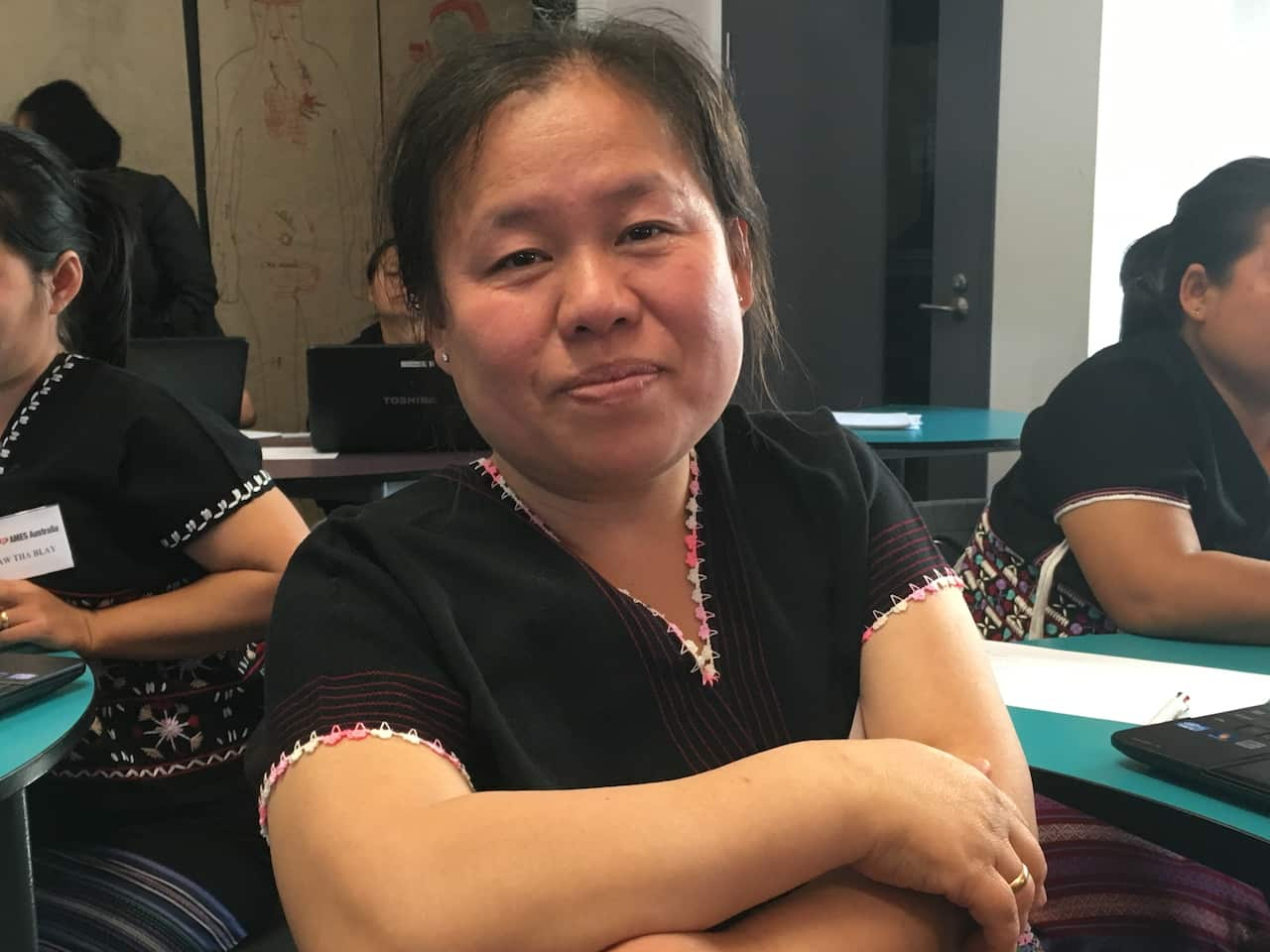For non-English speaking new-arrivals even simple tasks like arranging medical appointments or navigating public transport can be problematic.
Some parents can get left behind as their children's language skills improve.
Laverton College in Melbourne’s west identified the need for parents to integrate into the school and broader communities.
They enlisted AMES Australia, an organisation that works with refugees and new migrants, to devise a suitable program.
The pilot program has now been running successfully for a year.
AMES Australia education co-ordinator Judy Veal said the twice-weekly classes provided basic but critical skills, teaching adults how to navigate “library applications, job applications and just seeking information even using our public transport system”.
Teacher Anne Wiyono said having women from similar backgrounds in the classes helped them to learn.
“They're incredibly enthusiastic - really motivated and they're willing to work together and help each other which makes it really easy to teach,” she said.
Mother-of-three Hsar Po spent almost 30 years in a Thai refugee camp and didn't speak a word of English when she and her family arrived in Australia in 2011.

Kareni woman Hsar Po. Source: SBS News
Now she's one of about 20 Kareni parents who attend language and computer-skills classes at the school.
“For the Karen women, sometime we have to go to appointment with my kids at the hospital and so we need to speak English it's important for us because we are living in Australia,” she said.
So far, the classes have been run exclusively for the school's Karen community - but there are plans to extend the program to parents from Middle Eastern and Pacific Islander backgrounds.
Laverton College principal Richard Jones said he was extremely pleased with the results so far.
“When I started just on a year ago I'd say good morning to parents and some wouldn't be able to say good morning," he said.
"Now they come in and have a chat with the teacher too around how their children are going.”
Related reading

Language crisis confronts aging CALD communities
Share


